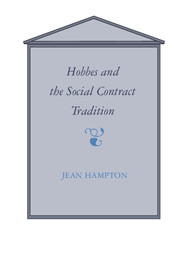Book contents
- Frontmatter
- Contents
- Acknowledgments
- A note on texts and references
- Introduction
- 1 “Of Man”: the foundation of Hobbes's political argument
- 2 What is the cause of conflict in the state of nature?
- 3 The shortsightedness account of conflict and the laws of nature
- 4 The argument for absolute sovereignty
- 5 Authorizing the sovereign
- 6 Hobbes's social contract
- 7 The failure of Hobbes's social contract argument
- 8 Can Hobbes's argument be salvaged?
- 9 How the traditional social contract argument works
- Bibliography
- Index
9 - How the traditional social contract argument works
Published online by Cambridge University Press: 05 June 2012
- Frontmatter
- Contents
- Acknowledgments
- A note on texts and references
- Introduction
- 1 “Of Man”: the foundation of Hobbes's political argument
- 2 What is the cause of conflict in the state of nature?
- 3 The shortsightedness account of conflict and the laws of nature
- 4 The argument for absolute sovereignty
- 5 Authorizing the sovereign
- 6 Hobbes's social contract
- 7 The failure of Hobbes's social contract argument
- 8 Can Hobbes's argument be salvaged?
- 9 How the traditional social contract argument works
- Bibliography
- Index
Summary
Hitherto men have constantly made up for themselves false conceptions about themselves, about what they are and what they ought to be. They have arranged their relationships according to their ideas of God, of normal man, etc. The phantoms of their brains have got out of their hands. They, the creators, have bowed down before their creations. Let us liberate them from the chimeras, the ideas, dogmas, imaginary beings under the yoke of which they have been pining away.
Karl Marx, presenting the Young Hegelians' creedIn the Introduction to this book I claimed that an analysis of Hobbes's argument is not only worthwhile for its own sake but also useful as a tool for understanding the structure and justificatory force of what I call a “traditional” social contract argument, that is, one purporting to justify the state (of a certain sort). In this chapter, I want to make good on that claim, first, by exploring what structure this kind of argument must have, such that it can be valid and plausible, and, second, by showing how an argument with this structure actually works as a justification of the state. I will not apply in any detailed way this analysis of the social contract's justificatory force to specific arguments given by members of this tradition, but I will at least attempt a sketch of that application for certain of its major members.
- Type
- Chapter
- Information
- Hobbes and the Social Contract Tradition , pp. 256 - 284Publisher: Cambridge University PressPrint publication year: 1987



